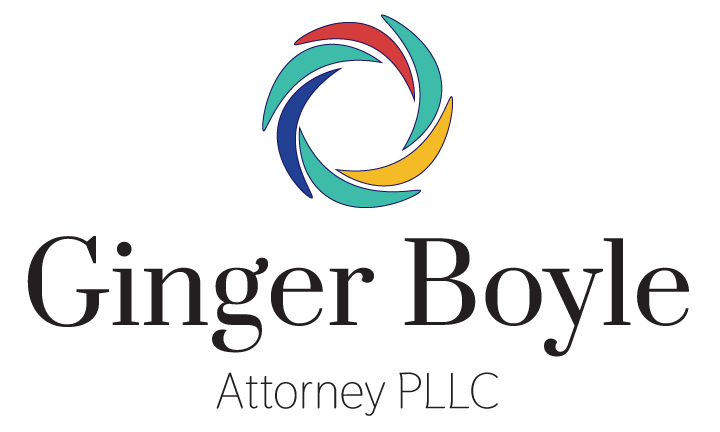
What is Divorce Mediation?
You and your spouse come to your own resolution in an informal and flexible mediation with me, a financial neutral and sometimes a divorce coach. I meet with you jointly and sometimes separately as you move through your divorce process. I facilitate conversations, encourage communication and tell you what I have seen other people do. I write down the agreements you make.
You meet with a financial neutral and a neutral divorce coach to keep your costs down. Each of these professionals charge less than I do. The financial neutral gathers your information and creates a report and financial scenarios. The divorce coach meets with you both to coach you through your grief process, facilitate communication and discuss parenting.
These other neutral professionals and I become your mediation team. Usually all of us attend joint mediation sessions. However, you need fewer mediation sessions because of the work you do separately with the financial neutral and the divorce coach. Your joint mediation sessions are streamlined and productive.
Unlike a judge or an arbitrator, neither I, nor any of the other neutral professionals take sides or make decisions for you. You solve your own problems with professional support. Courts use an adversarial system in which a judge hears positions and referees fights. Mediation employs a cooperative system in which you discuss needs and make agreements.
If mediation does not produce an agreement, either of you is free to take alternative courses of action. Mediation reduces tension because no result will be imposed upon you. It also reduces the likelihood that one of you clings to an extreme position, since you need to come to agreement. Negotiations between divorcing couples often involve multiple sessions, spread out over a few months.
Why Choose Divorce Mediation?
COST
I charge $400 per hour. Mediation typically takes much less time than litigation. I also recommend adding a financial neutral and a divorce coach to your mediation team. You work with these experts outside of mediation sessions at their rates of $200-$250 per hour. Then, you need fewer mediation sessions. The financial neutral creates reports and scenarios. The divorce coach works with communication and co-parenting. Even though more people are present at mediation sessions, you address both your financial and emotional needs.
COOPERATION
I and my team facilitate conversations on emotional topics. When you see and hear your spouse’s viewpoint, as well as express your own, you can tailor durable agreements. I also recommend you each agree to get independent legal advice before you sign your final legal documents so you understand the legal ramifications of your decisions. As a mediator, I provide legal information, not legal advice. I provide names of collaboratively trained attorneys to both spouses upon request.
CONFIDENTIALITY
Court hearings are public however mediation sessions are private. Only you, me, and other divorce professionals who attend the sessions know what transpired. There are limits to confidentially, however, based on personal and public safety.
CONTROL
I and my team value self-determination. You remain in charge of your own resolution by each giving informed consent to it. Your agreements are durable, in part, because you made them yourselves. If either or you gets overwhelmed during a session, you can ask for a break or to reschedule. In court, a judge would control the outcome and court rules impose some timing.
SUPPORT
I and my team are highly trained and experienced in facilitating difficult and often emotional conversations. We bring our calmness and empathy to our work. Our sacred task is to hold the whole family, see and hear each individual and encourage individuals to see and hear one another.
TIME
The timing and pacing of your process is another negotiation between you that I and my team facilitate. Normally one person is ready to move forward while the other person needs more time. Our experience is that the hike goes at the pace of the slowest hiker. As far as scheduling goes, we often put sessions on our calendars and then decide closer to that date if that meeting is necessary.
Divorce Mediation is a 5-Step Process
Many people think that mediation is an informal process, in which I chat with each of you until you suddenly drop your hostilities and work together for the common good. In fact, I designed my multi-stage mediation process to get results. It is less formal than a trial or arbitration, but there are distinct stages. I conduct most of my mediations as follows:
Mediator’s Welcome
Stage 1: Once you are in the Zoom room or seated at a table, I explain the goals and ground rules of mediation and prepare you for the process.
Parties’ and Mediator’s Expectations
Stage 2: As preparation for the first session, I ask you both to write out your goals for mediation and to review our Collaborative Mediation Agreement, CMA. Before we review our CMA and sign it, I ask each of you what you want to get out of that day’s session. Being clear about your goals facilitates your process. As you make agreements about your actions for the future, you make sure that they are in alignment with your goals. You keep on track for working cooperatively toward a fair and reasonable settlement.
Agenda Setting
Stage 3: We set an agenda keeping in mind both your joint and individual goals for that session. I put my recommendation of adding a financial neutral and a divorce coach to the mediation team on the initial agenda.
Working Through the Agenda
Stage 4: Taking a very methodical approach, I encourage you to talk directly about everything we’ve placed on the agenda. Some agenda items will take entire sessions, or multiple sessions, to discuss fully. We take the time you each need to address the issues, keeping in mind a common joint goal of cost-efficiency.
Wrap-up
Stage 5: I write down the agreements you make in a session. I send Progress Notes after each meeting. After your final session, I write a “Memorandum of Understanding,” summarizing your agreements. I recommend you take this Memorandum to independent attorneys, one to prepare and one to review your legal documents. If no agreement is reached, I acknowledge your progress. I suggest options upon request.
